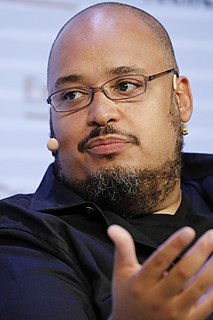A Quote by Hamdi Ulukaya
On the tech side, little start-ups can do something magnificent. They don't need too much in terms of plants and infrastructure.
Related Quotes
For countries such as Kenya to emerge as economic powerhouses, they need better infrastructure: roads, ports, smart grids and power plants. Infrastructure is expensive, and takes a long time to build. In the meantime, hackers are building 'grassroots infrastructure,' using the mobile-phone system to build solutions that are ready for market.
The most basic definition of a story is 'Somebody wants something and something's in his way,' and I'm more likely to be engaged if I at least think I know what those two 'somethings' are. They can be simple, they can be complex, but - particularly if you're a beginning writer - I'd rather you err on the side of revealing too much than too little.
It's unwise to pay too much, but it's worse to pay too little. When you pay too much, you lose a little money - that's all. When you pay too little, you sometimes lose everything, because the thing you bought was incapable of doing the thing it was bought to do. The common law of business balance prohibits paying a little and getting a lot - it can't be done. If you deal with the lowest bidder, it is well to add something for the risk you run, and if you do that you will have enough to pay for something better.
I find that kid actors are great reminders of the simplicity of acting. As you get older, you can sometimes complicate things a little more. You can become too aware of, 'Okay, this is the scene emotionally. This is where we need to be. We've got the climax coming up.' You can start to analyze it too much.



































